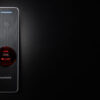
BIOMETRIC TECHNOLOGIES
This is the age where we humans, through biometric technologies, we can become the passwords and access to the things and places we want secured.
In an age where passwords, access codes, access cards have become inadequate and almost obsolete, security experts and manufacturers are finally offering some viable and cutting-edge alternative authentication methods that individuals and businesses can explore for effective and efficient security. This is the age where we humans, through biometric technology, become the passwords and access to the things and places they want secured.
Biometric access control enables and controls access at your organization or home based on human physical attributes, such as facial recognition, voice recognition, body heat, motion, fingerprints, hand geometry, iris, and retinal scans. It is a known fact that passwords can easily be compromised these days even with little effort and know-how. Biometric technology takes away that error and complexity inherent in the use of passwords to gain access to equipment or places. Note that the most secure places on earth are being secured with cutting-edge biometric technologies.
Outlined below are key benefits of biometric access control and how you can properly protect your facility for maximum security.
Biometric Access Control Benefits
Although biometric readers and more traditional access control equipment, such as keycards, have similar security purposes, physical attribute identification, such as fingerprints or facial recognition, makes false authentication more difficult. Biometrics can also add more convenience, as employees never have to worry about forgetting or losing keycards, keys, access codes or PINs.
With biometric readers, you can customize and control access to your building, restricted rooms and areas within it. If a breach occurs, you can quickly determine who was present and take required actions and needed measures. You can also employ the use of biometric time and attendance systems to keep track of your employees’ attendance and productivity levels at work.
Biometric access control is most common in high-security environments, organisations and controlled environments, such as government buildings, Data Centers, File Rooms, and IT Equipment Rooms.
Practice Appropriate Security Measures
Although biometric access control readers can add convenience and security, you must properly secure and install equipment. Keep the following tips in mind:
- Test your systems before rollout. Ensure biometric readers accurately detect the correct physical attributes for each employee. Before widespread adoption, have employees test that biometric devices are reading features correctly, and granting access as intended.
- Train employees on usage. Provide employees with guidelines and training resources to ensure they understand how the equipment works.
- Integrate as part of a comprehensive security plan. Biometrics should not serve as a standalone system. Integrate biometric readers with other security mechanisms (i.e. monitored alarms, motion sensors, and video surveillance, etc.) for maximum protection.
- Plan for a backup, should biometric readers fail, due to a power or Internet outage, or equipment malfunction. Additional security measures, such as passcodes or keycards, can provide employees with secondary access if needed.
- Work closely with a trusted vendor. Recommended biometric equipment varies depending on your business operations, location, environment, and necessary security levels. For questions on how you can ensure maximum security at your business with biometric access control, contact your vendor.
Some Biometric Systems to Consider.
Iris Scanning
This biometric technology is simpler than you might think, with an iris security system, you need a basic charge-coupled device (CCD) camera, which makes use of both visible and near-infrared light to capture a high-contrast picture of your eye.
This type of high-contrast digital picture taking makes it easy to isolate your pupil from your iris, and allows computer software to determine several unique measurements, including the location of the center of your pupil, the edge of your pupil, the edge of your iris, and the location of your eyelids and eyelashes. All of these measurements unique to you can then be stored and referenced in future iris scans.
Vein Scanning
Just as iris and fingerprints, veins are unique from individual to individual and tamper proof. In vein biometrics, the charge-coupled device (CCD) camera is also used, the CCD Camera takes a digital picture with the help of some near-infrared light. The hemoglobin in your red blood cells, which carry oxygen, absorb this light, returning an image that shows your veins as black in a digital picture. And just like in iris scanning, an algorithm identifies the unique patterns in your veins, stores it, and uses it for future comparisons.
Fingerprint Scanning
Where biometric technologies start to get advanced is what we have seen in smartphones these past few years. Many iPhone and Android phones ship with a built-in fingerprint scanner, allowing you to access all of your apps and even make payments with a simple scan of your finger. This technology has steadily evolved throughout the years, progressing from optical scanners to today’s capacitive scanners and the future’s ultrasonic scanners.
5 Ways Biometric Access Control Systems Will Increase Safety in your Organisation and home
- You are the access credential; such credentials cannot be duplicated.
- Access can be revoked with the click of a button.
- Surveillance video can be combined with door actions for better visibility.
- Know who accessed your doors when, and where they went next.
- Lock down your entire facility — instantly.
——————————————————————————————————————————————————
For more enquirers on the best biometric system(s) fit for purpose in your homes and organization please contact us
Suite 75-78, Terrace Wing, TBS Complex, Onikan Lagos,
+234 811 2677 777,+234 811 3677 777,
info@securetech.com.ng


